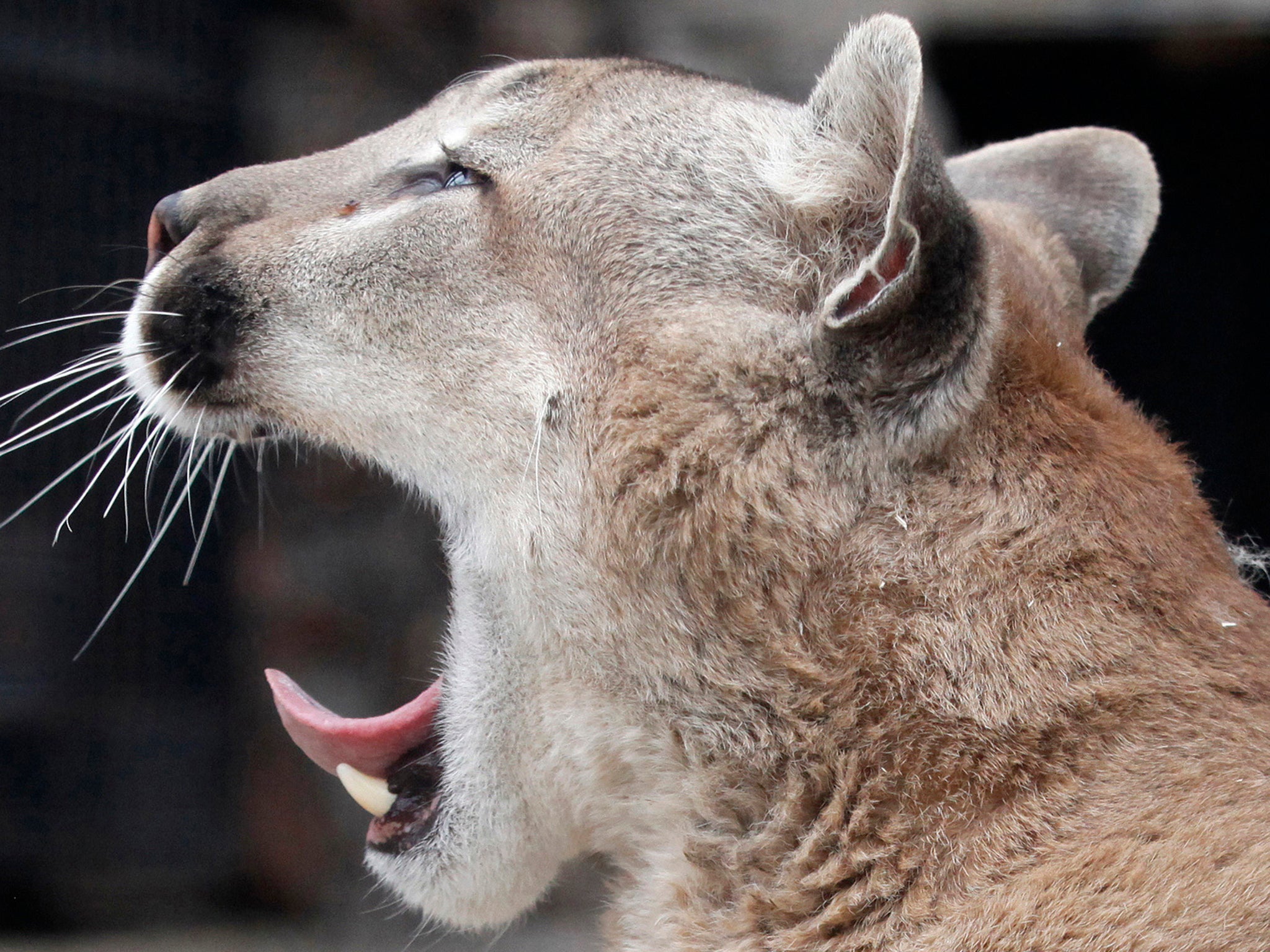The owner of Dartmoor Zoo on lost lynxes and the mystery of the UK's wild pumas
‘All the stories are doing the rounds now’, says owner of zoo that recently lost a lynx

Your support helps us to tell the story
From reproductive rights to climate change to Big Tech, The Independent is on the ground when the story is developing. Whether it's investigating the financials of Elon Musk's pro-Trump PAC or producing our latest documentary, 'The A Word', which shines a light on the American women fighting for reproductive rights, we know how important it is to parse out the facts from the messaging.
At such a critical moment in US history, we need reporters on the ground. Your donation allows us to keep sending journalists to speak to both sides of the story.
The Independent is trusted by Americans across the entire political spectrum. And unlike many other quality news outlets, we choose not to lock Americans out of our reporting and analysis with paywalls. We believe quality journalism should be available to everyone, paid for by those who can afford it.
Your support makes all the difference.The owner of a zoo in Devon that recently lost a lynx has fuelled the national fascination with feral big cats in Britain, after he was quoted in reports by several news outlets saying three pumas had been released into the wild in the 1980s.
The Telegraph even claims to have “solved” the decades-old mystery of alleged sightings of big cats roaming the fields and villages of Devon.
The paper quoted the founder of a big cats sighting society who related anecdotal evidence that three of five pumas being transferred from Plymouth to Dartmoor zoo were released by their owner en route.
But Benjamin Mee, the current owner and chief executive of Dartmoor zoo told The Independent there is no definitive proof he has seen to back up this version of the story.
However, Mr Mee claims to have once seen a feral wildcat himself close to where the incident supposedly happened.
Mr Mee bought the run-down zoo in 2006, after discovering a buyer could not be found and that the majority of the animals would have to be destroyed. At the time the zoo was home to several pumas.
A week after arriving at the zoo, in Sparkwell, Mr Mee said he and his brother made a sighting of a wild cat, and assumed one of the pumas in the zoo had escaped.
“On my seventh day in the village, having just bought the zoo and working out what to do, my brother and I and another guy saw a puma in the village, and we assumed that someone had released one of our puma. We were appalled and rang up the zoo and got someone to shine a torch on our cats to check they were still there. They were.”
“I said to the guy who worked here the next day ‘What on earth is going on, there’s puma in the village, I’m sure of it’, and he said, ‘Oh yeah, there’s puma here. Up on the moor they’re breeding.’”
He said: “There is no definite answer to how they got there, but there are several possible avenues I’ve heard and they’re all doing the rounds now.”
One major complaint directed at the persistent reports of wildcats in the UK is the lack of credible evidence.
“There is a whole industry for big cat sightings and they all have the same blurry filter on their camera,” Mr Mee said.
But he said that from his experience of working with the animals they would not need to eat vast amounts of livestock and, in small numbers, could remain hidden in an area as large as Dartmoor.
“I’m a sceptic, not a fantasist,” Mr Mee said. “But if you spend any time sitting still near a hedgerow, there are little animals in there and they’re all food, and there’re hundreds of square miles of it here.
“They could survive on less than a kilo and a half every other day. A rabbit would do it for more than a day, a lamb would be very tempting. If it takes on anything bigger there’s a risk. Predators like that would rather catch a few rabbits than one deer because they can kick you and break a rib, and then you can’t run and then you die.”
Away from the centuries-old debate over the existence of wildcats in Britain, Dartmoor zoo is facing a very real hunt for an lynx named Flaviu who escaped his enclosure earlier this month.
“We’ve found some very good prints in the central area we hoped he would stay,” Mr Mee said.
“We’re trying to feed him outside the traps to get him used to the fact that the traps are there."
He added: “We’ve got camera traps there that have caught film of magpies and deer and everything but a lynx. We’ve put out an appeal for more camera traps, and we’ve got a heat seeking camera coming soon.
“It’s really a waiting game."
Join our commenting forum
Join thought-provoking conversations, follow other Independent readers and see their replies
Comments